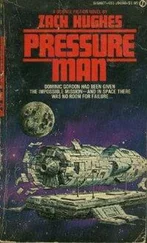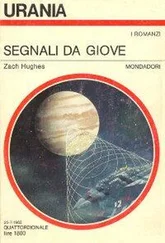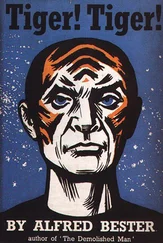Zach Hughes - Tiger in the Stars
Здесь есть возможность читать онлайн «Zach Hughes - Tiger in the Stars» весь текст электронной книги совершенно бесплатно (целиком полную версию без сокращений). В некоторых случаях можно слушать аудио, скачать через торрент в формате fb2 и присутствует краткое содержание. Жанр: Фэнтези, на английском языке. Описание произведения, (предисловие) а так же отзывы посетителей доступны на портале библиотеки ЛибКат.
- Название:Tiger in the Stars
- Автор:
- Жанр:
- Год:неизвестен
- ISBN:нет данных
- Рейтинг книги:3 / 5. Голосов: 1
-
Избранное:Добавить в избранное
- Отзывы:
-
Ваша оценка:
- 60
- 1
- 2
- 3
- 4
- 5
Tiger in the Stars: краткое содержание, описание и аннотация
Предлагаем к чтению аннотацию, описание, краткое содержание или предисловие (зависит от того, что написал сам автор книги «Tiger in the Stars»). Если вы не нашли необходимую информацию о книге — напишите в комментариях, мы постараемся отыскать её.
Tiger in the Stars — читать онлайн бесплатно полную книгу (весь текст) целиком
Ниже представлен текст книги, разбитый по страницам. Система сохранения места последней прочитанной страницы, позволяет с удобством читать онлайн бесплатно книгу «Tiger in the Stars», без необходимости каждый раз заново искать на чём Вы остановились. Поставьте закладку, и сможете в любой момент перейти на страницу, на которой закончили чтение.
Интервал:
Закладка:
the animals were plentiful. They were somewhat like large, shell-less slugs, moving by body convolutions to feed on the abundant vegetation. They
seemed to be unselective in their choice of foodstuff, eating any plant that came within reach of their blunt-toothed maws. The runabout had a hatch, but efforts to entice one of the animals into the vehicle were fruitless. Plank considered his resources. He discovered his mobile form in a storage area inside the cargo hold, called back the runabout and sent the armored, bipedal machine down. He stood on good earth, the grass thick under metallic feet, eye-sensors mounted atop the body in a manlike head. Ears heard the grinding, monotonous sound of the eating animals, the call of a dull, primitive bird thing from the high trees, the sigh of the wind. He was there, on the
planet, hearing, smelling, seeing. The feeling of being alive distracted him from his purpose. He wandered, exploring, admiring the variety of finely formed vegetation. He stood on the overgrown margin of a forest stream and watched fish swim, extended a hand to feel the water, cool and clear. It was a perfect planet for man. He would record its location, present his claim. Such thinking sobered him, reminded him that he was a mass of brain cells encased in a remarkable starship; that he was not actually standing on the surface, but encased, confined, far above this manlike extension, which was sending him his impressions of the planet. He captured one of the animals easily. The feel of it was fleshy, warm, soft. A thick skin protected the boneless body. It had low-grade eyes and rudimentary hearing organs. There were no protective mechanisms, the creature apparently having no natural enemies. It was not necessary to kill the animal. Probing and checking, shipboard instruments found surprisingly human cells, blood close enough to Earth-type to be an astounding coincidence, a primitive brain, a simple digestive system and an enlarged heart. It was as if a great blob of humanoid cells had been grown, as cells were being grown in test tubes back on Earth, and had formed into the simplest functioning animal imaginable. Examination of other specimens provided no surprises. There were few variations from animal to animal. The only unusual discovery was the method of reproduction: asexual, by division, like some huge and bloated one cell animal. The creature simply divided its small brain, sliced itself down the middle, with cells spontaneously forming into heart and digestive organs in the new creature. Aside from some rather primitive insect forms, the slug was the only ground life on the planet. The bird things were few, living on fruits and berries. The highest form of the primitive marine life was about as far advanced as Cambrian forms in Earth history. Plank recalled his extensions, mulled over his information and recorded it. He had been directed toward that planet for a reason, and he could not understand the reason. In the months ahead, he found that planets seemed to hold a vast attraction for him. He could not resist checking out an Earth-type world. Not that there were many of them. Many stars had planets, but the predominant form was the gas giant. Only one in 20 suns had life-bearing planets and many of those life forms were non-terran in type, living in poisoned atmospheres unsuitable for human existence. Still, in the timeless months, he checked and recorded and searched, working his way outward through the stars, crossing the vast distances instantly with the aid of his heart—his drive that blinked the Pride in and out of existence with an ease that ceased to amaze him after he had read, pointed and blinked from star to star 100, 200 times. There were moments when he had the urge to skip the near stars, to leap far, far away, and continue leaping until he found the small yellow glow of Sol. But when he looked through his outer eyes and saw, only
light-years away, a likely sun, he blinked to it, saw its family, orbited the likely planets and went through his routine. Nowhere did he find
intelligent life. Nowhere did he find life like the slugs of the first planet, which he had come to think of as Plank's World, since it was his first. And he did not know why he worked his way carefully down the stars, searching. He knew only that someday he would blink close to a grouping of stars and recognize the characteristics of Sol or Centauri. Then he would be home and there would be answers. He was alone, but he did not mind. He had the library. He had new sources of information that kept his mind active. He knew secrets about the universe that man had only guessed about; he logged them, sorted them and stored them in the bottomless bank of the computer. He was a creature of space, alive in it, loving it, cataloguing the Orion Arm as he looked for the familiar yellow glow of old Sol. His senses were enormously acute. He could spot and avoid a space traveler the size of a marble. He could see into the heart of a sun and measure the distance to the most remote galaxy. What he could not do, since his senses were blanked in that frequency, was spot the dark-skinned sphere, three times his size, that was always within planetary distance of him, following with endless patience as he continued his odyssey. It was always near, silent, dark, its presence unknown to Plank. When he blinked it blinked, emerging into normal space as he emerged, waiting as he explored still another world, always within easy range of his eyes, his senses, but undetected. CHAPTER TWO Plank's Pride had been listed as overdue at Shepard Terminal for just less than a year when the M. Scott Carpenter orbited and sent down the first crew contingent for medical checks and a bit of rehab in the centrigrav tanks of the moon's largest installation. On the way down Hara used the lighter's eye to check the grounded vehicles, which were, unlike the huge colonizer, capable of entering the moon's weak gravity for landing. An even three dozen ships stood on the ground, but the stubby, familiar shape of the Pride was not among them. She was disappointed, of course. But there could be several
explanations. The Pride could be Earthside for refitting or repair. The trip out and back took much out of a ship. In many ways, it was harder on the equipment than on the human crews, for there were few moments during the long, long blast when power wasn't operating at peak. Inside, many things could go wrong, but redundant life systems made it safer to ride a starship than an Earth-ground vehicle. Casualties had occurred, of course, but the percentage was small, and she never once admitted that Plank had even a million to one chance not to make it back. Plank was too smart, too strong, too stubborn to let space eat him. No, he must be on Earth or out for a test run or down below in one of the Terminal shops. When she felt the weak gravity of the moon she began to hook into LSG. The lighter made a smooth landing and the ramp clamped; air hissed as locks engaged. The ship's monitor gave a clear and she checked her safety switches on the LSG and followed her fellow crew members into the tunnel of the ramp, emerging into the reception room of the center to be probed, handled, questioned, X-rayed and discharged in less than two hours as being in the pink of health. It was the second time she'd gone through the reentry procedure. It seemed familiar, even though ten-plus years had separated the events. She asked doctors and nurses about Plank, and they could give her no information. One of the doctors, a cute woman in her eighties, remembered Plank. «Yes,» she said, «serious young man, nice looking. Went out on a cargo run. Yes, I remember him.» «I'll bet you do,» Hara said, but to herself. «I think he's due,» the doctor said. He was overdue. The Pride had lifted off days before the big colonizer, but Plank's turnaround time on the other end should have been much less. The Carpenter spent months on the other end unloading, acting as home base for the colonists until the temporary shelters could be erected. Plank should have been home months ahead of her. They had timed it that way so that they could spend the time between her missions together on the moon and on Earth. Finished with the formalities, she made her way to Operations. Her service uniform gained her admission, and still not concerned, she made her inquiry of a young junior officer. The young man took his job seriously, checking and rechecking before he pulled the file. «Plank's Pride?» he asked, frowning. «Yes.» «Your interest in the ship, sir?» «Friend,» she said. «I'm sorry, sir,» the young officer said. «I'll have to refer you to Intelligence.» For the first time a doubt entered her mind. She knew, however, that it
Читать дальшеИнтервал:
Закладка:
Похожие книги на «Tiger in the Stars»
Представляем Вашему вниманию похожие книги на «Tiger in the Stars» списком для выбора. Мы отобрали схожую по названию и смыслу литературу в надежде предоставить читателям больше вариантов отыскать новые, интересные, ещё непрочитанные произведения.
Обсуждение, отзывы о книге «Tiger in the Stars» и просто собственные мнения читателей. Оставьте ваши комментарии, напишите, что Вы думаете о произведении, его смысле или главных героях. Укажите что конкретно понравилось, а что нет, и почему Вы так считаете.




